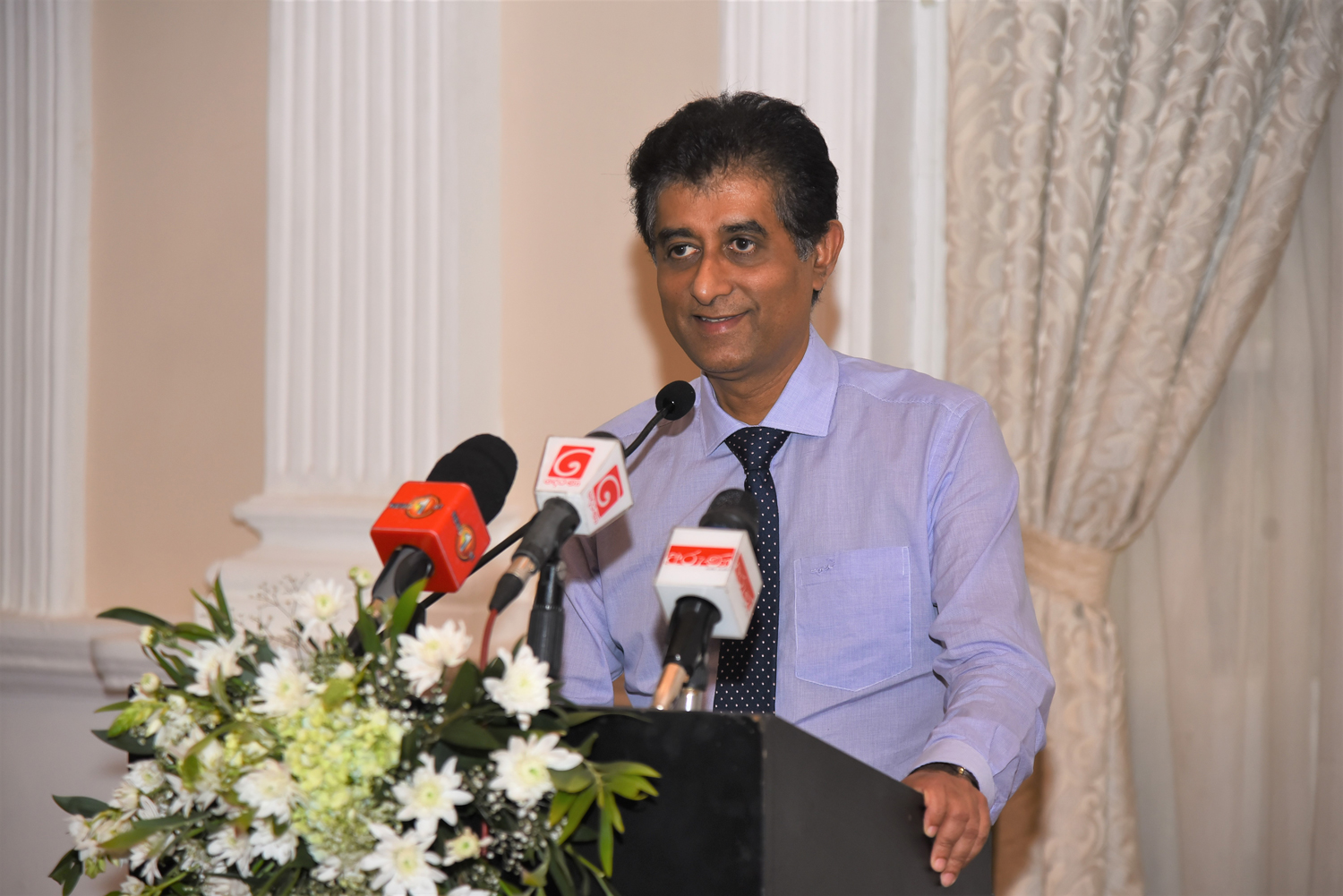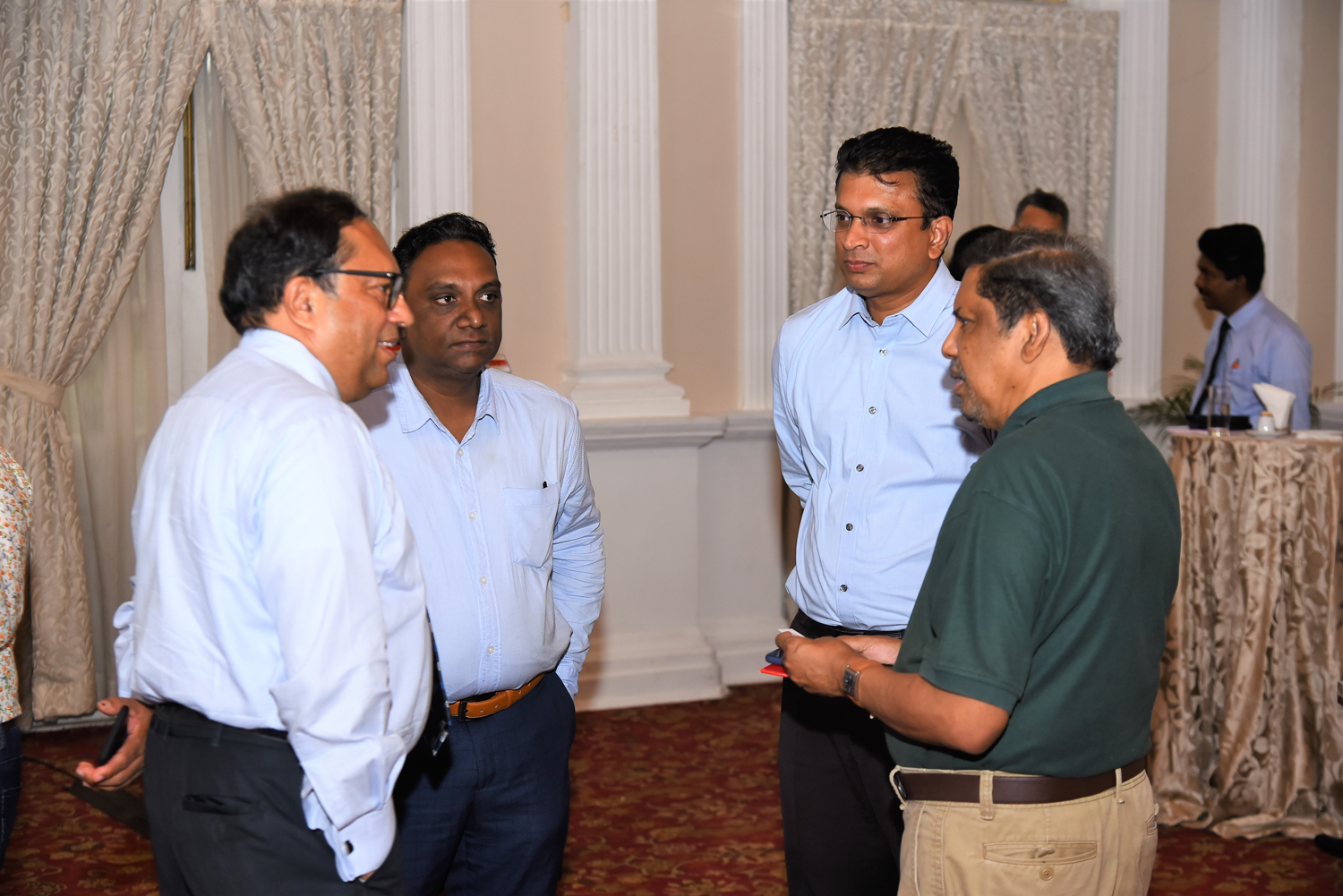CEYLON CHAMBER
NO TURNING BACK ON REFORMS AGENDA: HULANGAMUWA
 Sri Lanka is on the road to recovery thanks to economic and political stability from a year ago but there is no turning back on the reform agenda whichever political party is in power, according to the chairman of Ceylon Chamber of Commerce Duminda Hulangamuwa.
Sri Lanka is on the road to recovery thanks to economic and political stability from a year ago but there is no turning back on the reform agenda whichever political party is in power, according to the chairman of Ceylon Chamber of Commerce Duminda Hulangamuwa.
“Reforms are not easy. It is affecting all of us. But we need to tread this path because beyond this path we believe there is no other way. We can come out of the situation. Social inequalities have taken place because of the economic inequality. So we have to reform the economy,” said Hulangamuwa addressing media at a reception on Wednesday.
“Compared to last year we have achieved relative stability from where we were of power cuts, shortage of fuel, long queues etc. We have come a long way. We have stabilised the economy. We have stabilised the political situation and social fabric but we have a long way to go,” he said.
“I won’t say the problem is over. We need to tread carefully. I think we need to walk on the same path as what we have done in the last one year in order to introduce reform,” said Hulangamuwa, Country Managing Partner of Ernst & Young Sri Lanka and the Maldives, who took over as head of the Chamber in June.
He affirmed that Ceylon Chamber will continue with their policy of engagement and finding solutions to problems than making knee-jerk reactions.
“Our approach has always been one of engagement. How we can engage government how we can engage opposition. Whether it is favourable or unfavourable to the government, our position has always been that we always think of Sri Lanka first and that engagement with stakeholders,” he said.
“Engagement with opposition is a much better way to deal with situations than issuing statements. Wherever critical we have done so but most of the time our approach has been to engagement and deal with the situation,” he reiterated.
“For instance last year was one of the most critical years in the history of our economy. The chamber played an active role in engaging all political parties all stakeholders, all unions etc, during the crisis and trying to see how we can find a solution. How we can give an alternative to what was happening,” he pointed out.
“The board engaged all political parties on 30 or 40 occasions to see how we can find a solution to the problem. I think we have been very successful in that effort,” he affirmed.
He said everyone was in everyone was in agreement that there is no way out of cauldron without implementing reforms.
Addressing the next generation consisting of youth involved in politics representing different political parties and parliamentarians from all hues recently, he sent out a clear message that reforms is a must for economic and social stability.
“It is difficult. We have to stabilise the economy with which we could expect social stability,” he said.
“My message to all of them was whichever government is in power or whichever government will come into power, we have to go on the reform agenda. Whether it is to do with petroleum or electricity or the taxation system, because we were all living on subsidies and that is why we have to face this problem,” he pointed out
“Consumption (imports) grew our loans to US dollars 80 billion. Ofcourse there has been infra structure investment but it has not given us enough returns to pay off our loans. But if we follow this path again of giving subsidies and trying to attract voters, this whole reform process will collapse,” he warned.
“Since we took over in July, we met the President, Leader of the Opposition and the JVP. Ofcourse there is a difference in the way that the politics are handled. Generally reform agenda is something all are agreed that it needs to be done. They have arrived at a consensus. I doubt whether in future political parties will comes and promise thing on stage,” he said opined.




